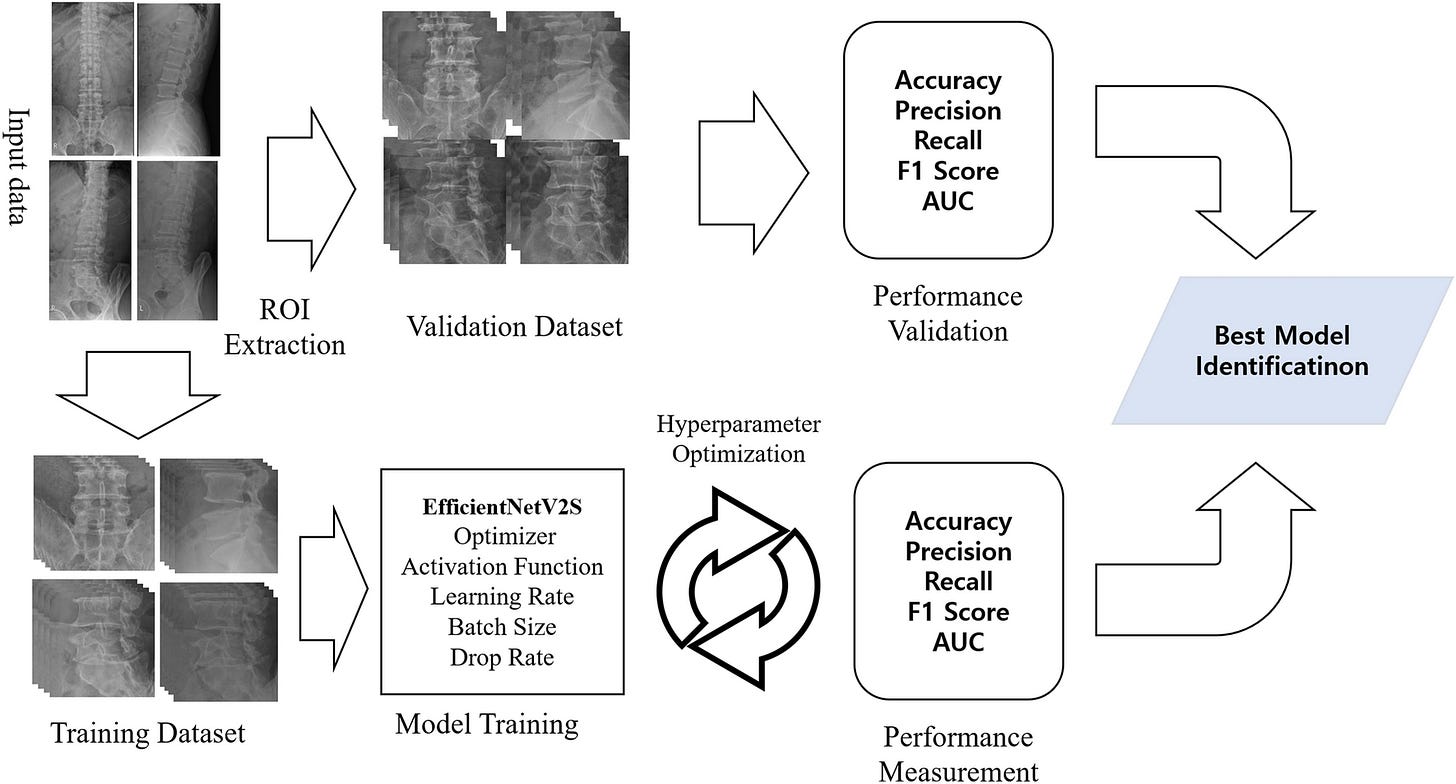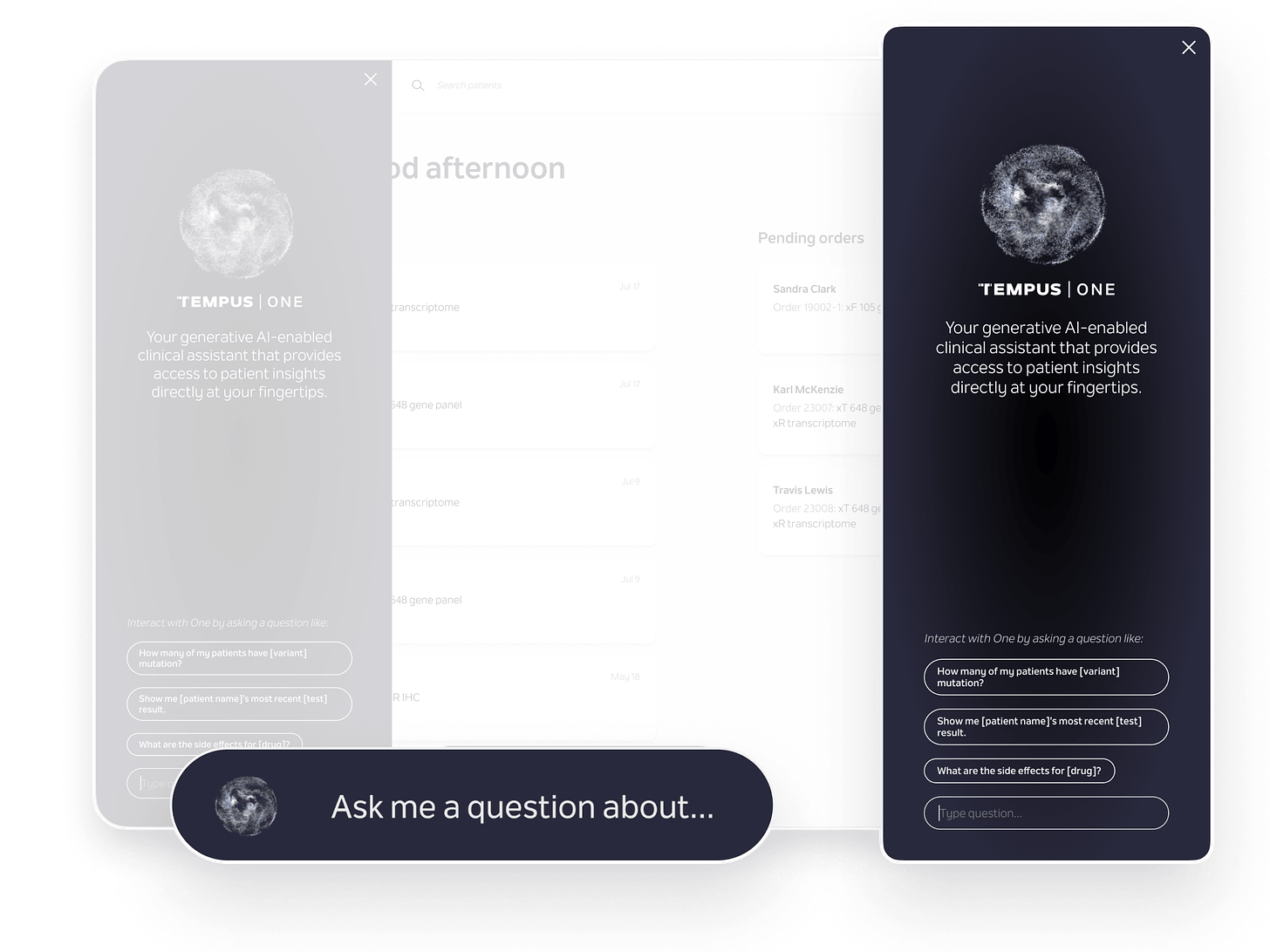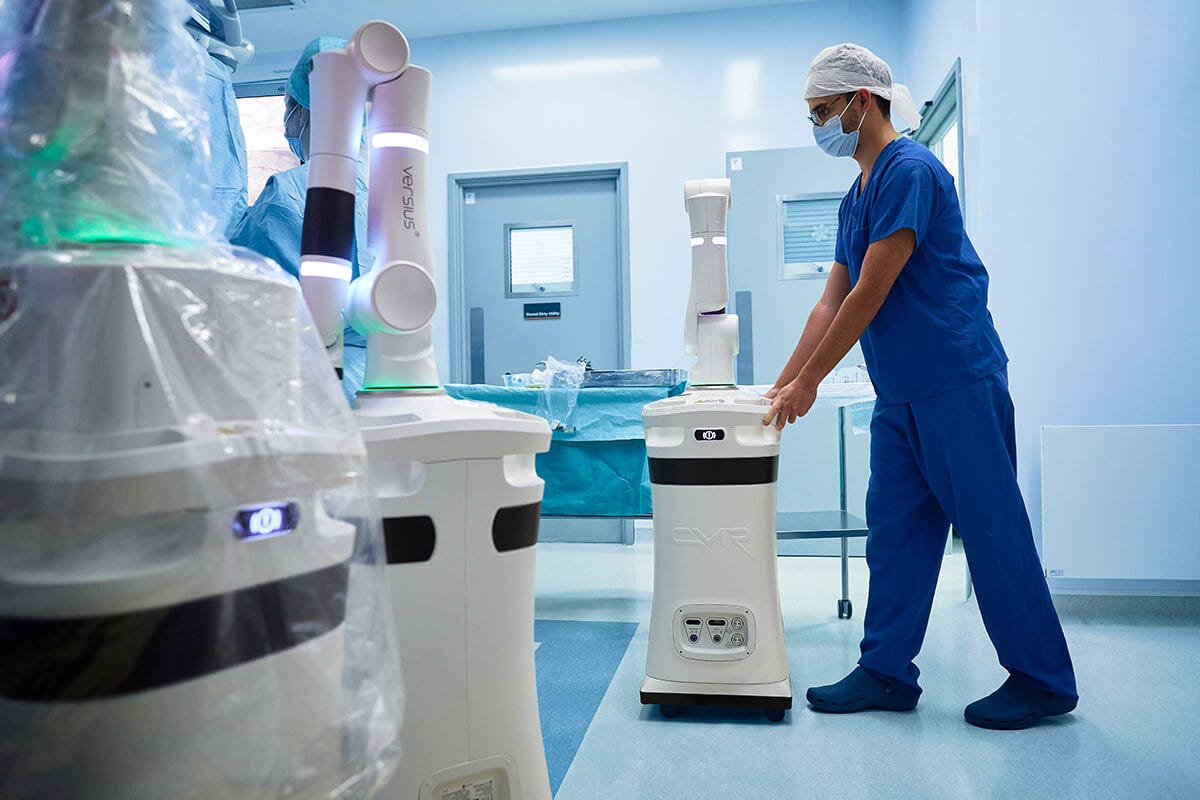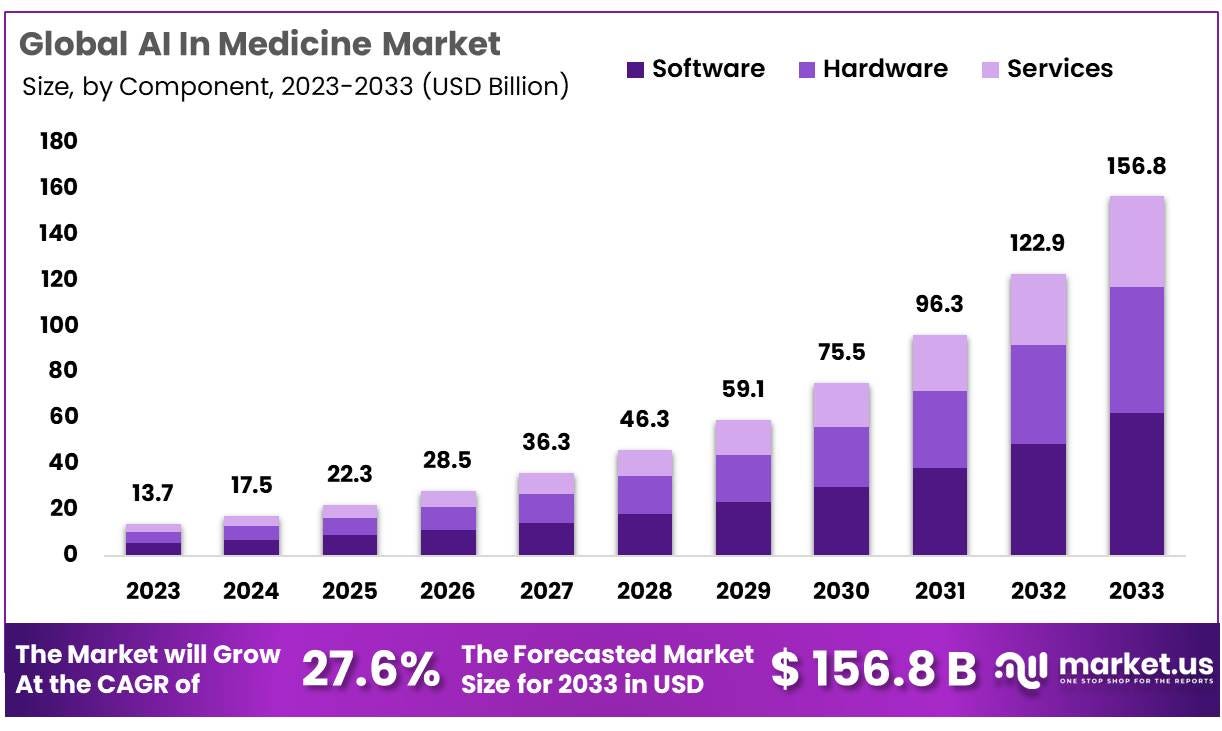🚀 Explore Med AI's Latest Breakthroughs: From Novel Cancer Treatment to Enhanced Physician-Patient Communication - Discover Now! 🧬
Updates on Artificial Intelligence & Emerging Technologies in Medicine 🤖🩺
“We need to design and build AI that helps healthcare professionals be better at what they do. The aim should be enabling humans to become better learners and decision-makers.” - Mihaela van der Schaar, PhD, director of the Cambridge Centre for AI in Medicine at the University of Cambridge in the U.K.
Dear Med AI Enthusiast,
Welcome to The ‘Med AI’ Capsule weekly newsletter, your inside look at how artificial intelligence and emerging technologies are transforming medicine.⚕
Whether you're a medical professional 👩⚕️, a technology enthusiast 💻, or simply someone with a curious mind 🧠, The 'Med AI' Capsule is designed for you.
It helps you stay informed 📰 about the latest groundbreaking updates and offers insights into the rapidly evolving world 🌍 of artificial intelligence and emerging technologies in medicine.
Let the adventure begin! I'm thrilled to have you along for the ride. 🚀
In today’s capsule:
3 News Updates
3 Research Updates
2 Industry Innovators
2 Upcoming Events
1 Knowledge Resource
1 Infographic
Reading Time: 5-7 minutes
News Updates 📰
1. 🧬 Generative AI Helps Discover New Drugs for BRCA-Deficient Cancers
Insilico Medicine has announced the discovery of a novel class of Polθ inhibitors specifically targeting BRCA-deficient cancers, utilising its proprietary Chemistry42 generative AI platform.
These inhibitors are designed to be orally bioavailable and have shown significant promise in early tests, exhibiting strong potency and druglike properties.
Why Important: BRCA mutations contribute to several difficult-to-treat cancers, such as triple-negative breast cancer and ovarian cancer. Current treatments often face challenges like resistance and limited efficacy.
The newly discovered Polθ inhibitors could provide a more effective treatment alternative, potentially improving outcomes for patients with these cancers.
Caution: While the initial results are promising, these new inhibitors still require further clinical trials to confirm their safety and effectiveness.
The use of AI in drug discovery processes continues to evolve, emphasizing the need for rigorous validation and regulatory review before these potential treatments can enter the market.
2. 🤖 AI Tool Shows Potential in Enhancing Physician-Patient Communication
The UC San Diego School of Medicine has introduced generative AI into their health records system to create empathetic initial responses for patient communications, enhancing interaction quality while reducing physicians' drafting efforts.
However, it's essential to maintain human oversight in editing to ensure personalized, high-quality patient interactions; the system doesn't reduce response times but enhances the quality of the drafts, emphasizing the importance of human involvement in clinical decisions.
3. 🔍 AI Algorithm Helps Reduce Unnecessary Medical Interventions in Mammography
A new deep learning AI algorithm, developed from over 123,000 digital mammograms, shows significant promise in reducing false positives and unnecessary procedures in breast cancer screening by automating the detection of negative exams, thus decreasing radiologist reviews, callbacks, and benign biopsies.
While such AI technology shows promise, ensuring its safe operation through robust quality assurance and monitoring is crucial, with further research needed to fully validate its effectiveness and safety in clinical settings.
Research Updates 🔬
1. 🤖 AI Shows Promise in Predicting Outcomes of Epidural Injections for Lumbar Pain

Researchers have developed a convolutional neural network (CNN) algorithm that uses lumbar spine radiographs to predict outcomes of transforaminal epidural steroid injection (TFESI) for patients with lumbosacral radicular pain from lumbar spinal stenosis.
The study involved 193 patients and showed that the CNN model could distinguish between 'favourable' and 'poor' outcomes with high accuracy.
Key Findings:
High Predictive Accuracy: The model achieved a predictive accuracy of 87.2% and an area under the curve (AUC) of 0.920, indicating an excellent diagnostic capability.
Impressive Validation Results: In the validation set, the model demonstrated robust performance with a 94.2% training accuracy and an AUC of 0.983.
Clinical Relevance:
Enhanced Prediction Tools: The CNN model offers a cost-effective and accessible method for predicting therapeutic outcomes, potentially assisting clinicians in planning more effective treatment strategies for patients suffering from lumbosacral radicular pain.
Limitations and Future Directions:
Need for a Larger Sample Size: To improve the generalizability of the findings, future studies should include lumbar radiographs from multiple institutions.
Potential for Multi-Level Analysis: The model currently predicts outcomes based on single-level lumbar spinal stenosis; incorporating multi-level data could enhance accuracy.
This groundbreaking approach could significantly impact the management of spinal conditions, providing a reliable tool for predicting patient outcomes and tailoring interventions accordingly.
2. 💡 AI Helps Predict and Enhance Scalp Health with Personalized Scalp Cosmetics
An AI model developed using over 100,000 scalp images to prescribe personalized cosmetics significantly improved scalp conditions like dandruff and oiliness, demonstrating sustained benefits over 12 weeks and highlighting AI's potential to enhance and personalize dermatological care.
However, the study's focus on a Korean population limits its generalizability; to validate findings, future research should include diverse demographics and employ randomized trials to enhance the AI model's clinical relevance and broader application.
3. 👩⚕️ Study Reveals Gaps in AI Literacy Among Medical Students
A study conducted at two German medical schools using validated assessment instruments found students rated their ability to critically appraise and use AI highly but had a low technical understanding of AI, and that higher AI literacy correlated with greater AI acceptance and less fear, indicating a need for AI education programs.
Limitations included cross-sectional design and reliance on self-assessments, while future directions involve developing and incorporating education programs within medical curricula to improve students' AI literacy.
Industry Innovators 👨🏭
Tempus - dedicated to personalized patient care and innovative studies in precision medicine. It has developed advanced diagnostic tools like the FDA-designated HLA-LOH assay and xR RNA sequencing assay for solid tumors. A significant development from Tempus is the launch of Tempus One, an AI-enabled clinical assistant that provides clinicians with patient insights at their fingertips.
CMR Surgical - offers a mature, evidence-based approach to surgical robotics, supported by a comprehensive digital ecosystem. Their focus is on improving patient outcomes and driving efficiencies through actionable data and insights from their surgical robotics technology. They have developed a small, modular, and portable surgical robot called Versius, designed to facilitate minimal access surgery with a patient-centric approach.
Upcoming Events 🧑💻
Knowledge Resource 📚
Blog Article: 8 Mindblowing Examples Of Technology Innovation In Healthcare by Andrea Koncz (TMF)
The article discusses 8 innovative and unconventional solutions in healthcare that demonstrate how thinking outside the box can lead to significant advancements in medical treatment and patient care. The key takeaways are:
The examples highlighted range from reimagined everyday objects to solutions inspired by nature, proving that effective healthcare doesn't always need to be complicated.
The innovations include zip-up wound closures, AI-assisted wearable devices for speech translation, at-home breast ultrasound monitoring devices, non-invasive sweat sensors for inflammation monitoring, electrical stimulation for chronic wound healing, drone-delivered defibrillators, and interactive rehabilitation floors.
While these innovations show promise, they also have limitations and cannot fully replace traditional medical care or the expertise of healthcare professionals.
Collaboration across diverse fields and disciplines is crucial for driving innovation in healthcare, but it must be balanced with maintaining evidence-based practices and addressing ethical considerations such as patient privacy and equitable access.
The article encourages medical professionals to embrace innovative tools, challenge the status quo, and advocate for changes that genuinely benefit patients while upholding critical and scientific thinking.
In summary, the article celebrates unconventional medical innovations as examples of how thinking creatively can improve healthcare outcomes and patient experiences, while also acknowledging the importance of responsible implementation and evidence-based practices.
Let’s wrap it up with an Infographic! 📊
Your feedback is crucial to me, as it helps me understand your interests and improve my offerings. I would appreciate it if you could take a few minutes to share your thoughts about what you've enjoyed and what you think I could do better - https://forms.gle/xpbpgVEyARWx6ZxN8
Stay tuned for our upcoming editions as we explore the latest breakthroughs and dive deep into the transformative power of artificial intelligence and emerging technologies, shaping a healthier future. 🚀
Warm regards,









